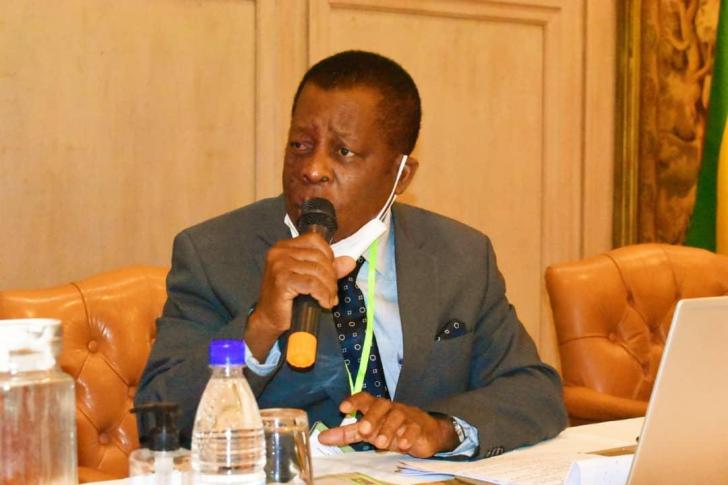News / National
Mnangagwa explains why Gata was declared national hero
3 hrs ago | Views

As questions arise among Zimbabweans about why certain individuals who did not directly participate in the liberation struggle are accorded the status of national heroes, President Emmerson Mnangagwa has offered clarity on the matter.
Speaking during the burial of Sydney Gata, one such declared national hero, President Mnangagwa highlighted that Zimbabwe's national heroes are no longer limited to those who fought in the liberation war. Instead, a new generation of heroes from various fields is being recognised for their patriotism and service to the nation.
"Over the years, a new breed of heroes continues to be honoured who have distinguished themselves in various areas of society including in post-independence governmental administration, diplomacy, as well as in commerce and industry," the President said.
He emphasised that regardless of the field, those honoured as national heroes "stand as a towering symbol of true patriotism, selfless dedication and persistent commitment to our motherland, Zimbabwe."
Sydney Gata's elevation to national hero status has prompted some public curiosity, with many questioning the criteria used for such declarations.
Dr Gata came to Zimbabwe at Independence and joined the University of Zimbabwe as a lecturer in the Faculty of Engineering, where his international experience enriched teaching and research.
He later served as Deputy Secretary in the Ministry of Manpower and Planning Development, spearheading the construction of polytechnics and the National Training Centre, which significantly advanced technical and vocational education in Zimbabwe.
Dr Gata's political journey included joining ZANU PF, where he served as Provincial Secretary of Economic Affairs and Secretary for Transport and Welfare.
In 1982, he made history as the first African General Manager of the Zimbabwe Electricity Supply Company (ZESC), a position he held for five years. He played a pivotal role in the amalgamation of electricity authorities into the Zimbabwe Electricity Supply Authority (ZESA), guiding the power sector through its formative years.
His influence extended regionally when, in 1983, he was appointed to the board of the Central Africa Power Corporation (CAPCO), contributing to regional energy initiatives.
In 1986, Dr Gata was appointed Chief Executive Officer and board member of ZESA, cementing his legacy as a key figure in Zimbabwe's energy sector development.
President Mnangagwa's remarks underscore a broader definition of national heroism that recognises contributions to the nation's post-independence growth and development, extending beyond the liberation war to embrace excellence and service in all sectors of society.
Speaking during the burial of Sydney Gata, one such declared national hero, President Mnangagwa highlighted that Zimbabwe's national heroes are no longer limited to those who fought in the liberation war. Instead, a new generation of heroes from various fields is being recognised for their patriotism and service to the nation.
"Over the years, a new breed of heroes continues to be honoured who have distinguished themselves in various areas of society including in post-independence governmental administration, diplomacy, as well as in commerce and industry," the President said.
He emphasised that regardless of the field, those honoured as national heroes "stand as a towering symbol of true patriotism, selfless dedication and persistent commitment to our motherland, Zimbabwe."
Sydney Gata's elevation to national hero status has prompted some public curiosity, with many questioning the criteria used for such declarations.
Dr Gata came to Zimbabwe at Independence and joined the University of Zimbabwe as a lecturer in the Faculty of Engineering, where his international experience enriched teaching and research.
He later served as Deputy Secretary in the Ministry of Manpower and Planning Development, spearheading the construction of polytechnics and the National Training Centre, which significantly advanced technical and vocational education in Zimbabwe.
Dr Gata's political journey included joining ZANU PF, where he served as Provincial Secretary of Economic Affairs and Secretary for Transport and Welfare.
In 1982, he made history as the first African General Manager of the Zimbabwe Electricity Supply Company (ZESC), a position he held for five years. He played a pivotal role in the amalgamation of electricity authorities into the Zimbabwe Electricity Supply Authority (ZESA), guiding the power sector through its formative years.
His influence extended regionally when, in 1983, he was appointed to the board of the Central Africa Power Corporation (CAPCO), contributing to regional energy initiatives.
In 1986, Dr Gata was appointed Chief Executive Officer and board member of ZESA, cementing his legacy as a key figure in Zimbabwe's energy sector development.
President Mnangagwa's remarks underscore a broader definition of national heroism that recognises contributions to the nation's post-independence growth and development, extending beyond the liberation war to embrace excellence and service in all sectors of society.
Source - online






















